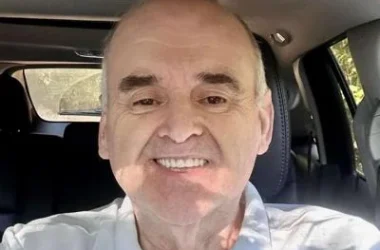By Lon Anderson
If they weren’t bought, it was not for a lack trying.
Independent expenditures made mostly by so-called “Super PACs” (political action committees) totaled over $9.2 million, almost all of it out-of-state money, according to an analysis by the Center for Responsive Politics (CRP).
That amount far exceeded the money spent by all of the candidates and their campaigns on their elections, which combined, totaled $7,802,745, according to the latest Federal Election Commission (FEC) records.
What these numbers tell us, is that out-of-state independent expenditures — money not controlled by the candidates or their campaign — totaled about $1.4 million dollars more than all of the money spent by the candidates’ own campaigns and the citizens of West Virginia who contributed to them.
Simply put, this means that the May primary election “was not about who West Virginians wanted,” explained Dr. Robert Rupp, Professor of History and Political Science at West Virginia Wesleyan College in Buchannan. “It’s about who the political parties and the special interests and lobbyists (from outside the state) want.”
“What we have here — and West Virginia in 2018 is an extreme example of what’s happening across the nation — are elections being hijacked by outside interests willing to spend extraordinary amounts of money.”
The mechanism used to achieve this was the so-called “super PACs”. According to the Merriam Webster Dictionary, a super PAC is “an independent PAC that can accept unlimited contributions from individuals and organizations (such as corporations and labor unions) and spend unlimited amounts in support of a candidate but that cannot directly contribute money to or work directly in concert with the candidate it is supporting.”
Regular PACS, it should be noted, have strict limitations on the amount of money they can accept from contributors — $2,500 from individuals, and corporations and unions are strictly forbidden from making donations. Also, regular PAC’s have strict reporting requirements to disclose where all of their money comes from and how it was spent, with much of that reporting required before the election.
And, as the FEC post-election reports clearly show, in the spring of 2018, 11 super PACs from all over the nation flooded West Virginia with their money to influence the primary elections.
Having so much outside money pour into West Virginia to influence an election “isn’t normal at all,” Rupp explained. “It’s extraordinary.”
West Virginia, until recently, “was a rather boring state politically. For about 60 years, you could count on three or four players who controlled the (political) landscape: Rockefeller, Byrd, Randolph and Manchin.”
“So now we’ve gone from boring to having the most vulnerable Democrat (Senator) in the nation,” Rupp continued.
Because President Trump received such a large percentage of the West Virginia vote, “Manchin has a big target on his back. So, we are the center of attention politically, and not surprisingly, for outside money.”
Besides the perception that Manchin is vulnerable, there are at least two other important reasons that make his Senate seat a national focus. First, is the fact that the Republicans hold only a one-seat majority in the Senate, so adding another Republican is a top priority for the GOP and its supporters. Second, with such a small population, and no expensive media markets, the West Virginia Senate seat is a very cheap buy when compared to the costs of Senate elections in higher-density, more urbanized states.
No wonder we became such a focus for super PAC spending. The largest amount spent by a PAC was by the Senate Majority PAC, a super PAC that spent nearly $2.6 million on behalf of incumbent Senator Joe Manchin.
Interestingly, super PACs don’t just spend their money “for” candidates. Because of the pre-election anonymity afforded them, they can also play a critical role by attacking a candidate’s opponents, as was the case here.
The Super PAC 35th Inc, for example, raised nearly $1.2 million, and according to its FEC filing, “is a single candidate super PAC in support of Patrick Morrisey.” Morrisey, of course, is the state’s Republican Attorney General, who, in the primary, was seeking to win the Republican nomination to oppose incumbent Senator Manchin, which he did.
But this PAC spent over twice as much against one of Morrisey’s opponents, Republican Congressman Evan Jenkins, who was also running to win the Republic Senate nomination. 35th Inc. PAC spent $809,980 against Jenkins, according to CRP’s analysis of FEC reports, while only spending $300,406 on positive messages on Morrisey. If you were a registered Republican in West Virginia, you likely received one — or several — full color, oversized, glossy campaign post cards touting Patrick Morrisey for U.S. Senate.
Most folks would assume that these were from the Morrisey campaign, but a disclosure just above the address states: “Paid for by 35th, Inc. Not authorized by any candidate or candidate’s committee”. And although the address of the PAC is listed in Morgantown, it’s the address of the law firm Clark Hill, PLC, with 25 offices nationally and internationally, and over 600 attorneys.
Only one West Virginian was included on the list of donors to this super PAC, which the law did not require to be made public until after the election. That person, a retired resident of Charles Town, contributed only $500. Others, like Marcus Bernard, a founder of Home Depot, and a resident of Atlanta, GA, gave $250,000.
But that was small potatoes compared to the $500,000 contribution to 35th Inc. made by Richard Uihlein of Lake Forest, Il. Uihlein, is a frequent Republican contributor who has given millions to conservative GOP candidates including former Senate candidate from Alabama, Judge Roy Moore, and Texas Senator Ted Cruz.
Interestingly, Uihlein’s contribution to 35th, Inc was just the beginning of his efforts to influence WV voters. He also solely funded Americas PAC, another super PAC, that spent $554,200 against Manchin. He also was the primary funder of Restoration PAC, which spent $528,685 on behalf of Morrisey and another $18,500 against Manchin. That’s at least $1.6 million-plus spent by one person from Illinois to influence West Virginia’s elections.
Another contributor to 35th Inc PAC was Citizens for a Working America, a super PAC that contributed $92,500, and is a Virginia-based conservative group with ties to Ohio and Kentucky, according to Sam Stein, a national reporter for the Huffington Post.
In a story about that PAC, Stein said: “In many respects…Citizens for a Working America is a perfect illustration of how a shadowy network of political operatives is managing to alter the electoral landscape under the cloak of secrecy.” Likely, the same could be said for many of the 19 outside groups that contributed to the $9.2 million that flooded West Virginia’s primary elections in May.
Also on the list of contributors to the 35th Inc PAC, were Koch industries, which provided $60,000. The owners of that company, the Koch brothers, are well known nationally for making huge contributions on behalf of conservative Republican candidates. Other contributors came from Ohio, New York, New Jersey, Arizona, Kansas and Missouri.
That, said, when one examines the donors from the largest super PAC donor in this race, the already mentioned Senate Majority PAC, one finds a similar dispersion of donors that seem to come from anywhere but WV — New York, Indiana, California, Florida, Michigan, DC, Texas, and on and on. None from West Virginia were listed on the report. It should be noted that this PAC gave funds to many Democratic senators and candidates across the nation.
Of particular interest are two other super PAC’s that were created just to “pour millions of dollars into the West Virginia Senate Primary race” according to a story by Jordan Miller of the Center for Responsive Politics.
“The conservative Mountain Families PAC and liberal Duty and Country PAC, which combined spent more than $3 million in the West Virginia race, both used FEC loopholes to shield their respective donors before the May 8 election,” Jordon said. And, the story reported, none of the donors to these PACs were from West Virginia.
FEC filings reported by the CRP indicate that The Mountain Families PAC was a single candidate PAC, formed to support Morrisey and spent its entire $1.3 million attacking fellow Republican candidate Don Blankenship. FEC filings also show that all of its money came from one donor, another Super PAC, the Senate Leadership Fund, linked to Senate Majority Leader Mitch McConnell. Blankenship was known to have publicly launched very personal attacks on McConnell and his family. No West Virginia donors were listed.
The liberal Duty and Country super PAC raised just over $2 million, FEC reports show, and spent it all in support of Manchin. However, it spent only $40,000 “for” him, but spent $87,811 against Morrisey along with $1,807,753 against Congressman Evan Jenkins. None of the donors appear to be from West Virginia, and the list even included the Chicago White Sox baseball team which contributed $100,000.
The stories appear similar with many of the 19 outside organizations that contributed through independent spending, and amazingly 11 of them were super PACS, with money coming from companies, individuals, and even a baseball team, but rarely from a West Virginian.
“They are warping the intents of our founding fathers,” declared Rupp from West Virginia Wesleyan. A primary premise of those architects of our government expected “that citizens in a district or a state would be responsible for an election from that district or that state. But recent Supreme Court decisions have made this process far less transparent.”
“Outsiders have rarely seemed to come into WV to influence our elections until now,” Rupp continued. “Not only are the citizens frustrated, but so are the candidates who have no control over the spending. And the money is being spent, not just for the best candidate, but to eliminate the most formidable opponents, which is what we saw with Jenkins getting hit so hard.”
So, it would appear, with non-West Virginians spending over $9 million in the state for the sole purpose of influencing the Senate primary election — far more than the candidates and their campaigns spent — and with no disclosure about the spending required until after the election, few voters could really understand how their actions and attitudes about the candidates and, ultimately, their votes, were being influenced.
Only now, after the election, with the FEC filings released, can the price of the election, how much was paid for it, and by whom, be known. And it appears that the citizens of West Virginia were, once again, on the short end.
(Special thanks to reader Oscar Larson of Baker who wrote Ask the Examiner to find out who the organizations were that were sending out all of the campaign mailers and how much of their much funding comes from West Virginia. His question prompted this analysis.)





